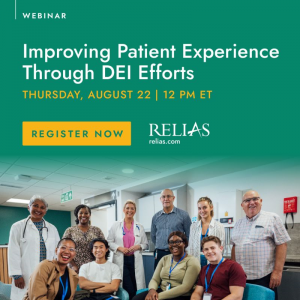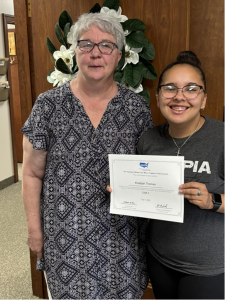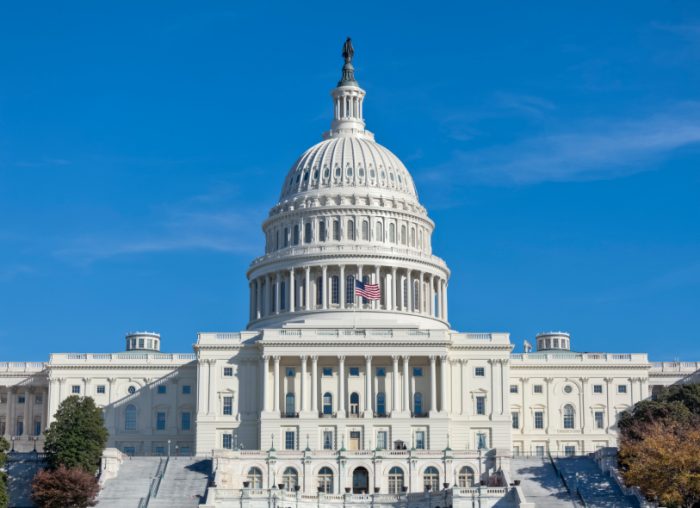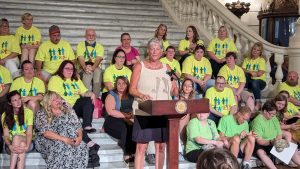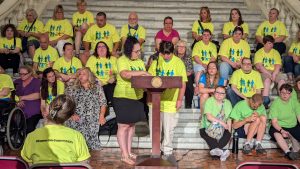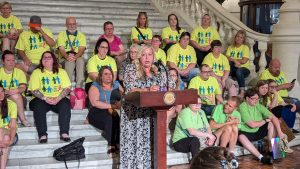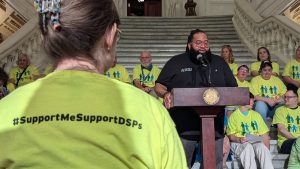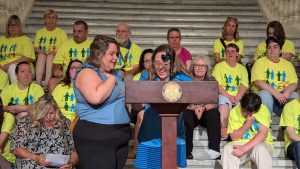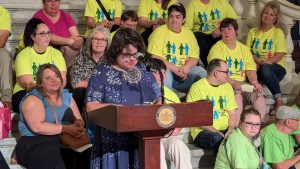Self-advocates joined RCPA, several legislators, and other associations and provider organizations at a press conference to support ID/A funding in the state budget on Wednesday, June 26, 2024, at the State Capitol in Harrisburg. As part of his 2024/25 budget proposal, Governor Josh Shapiro called for investing $483 million in state and federal funds into the network of care for individuals with intellectual disabilities and autism (ID/A). If enacted, the funding would allow more individuals to access professional support and services as well as relieve families of around-the-clock caregiving duties. ID/A providers across Pennsylvania have long called for increased state investments, and this allocation will allow providers to recruit and retain more direct support professionals (DSP) who have cared for these individuals at low wages. The lack of DSPs and funding have caused thousands of Pennsylvanians to wait months or more for services and support.
Sherri Landis of the Arc of PA spoke, as did Representatives Kinsey and Heffley.
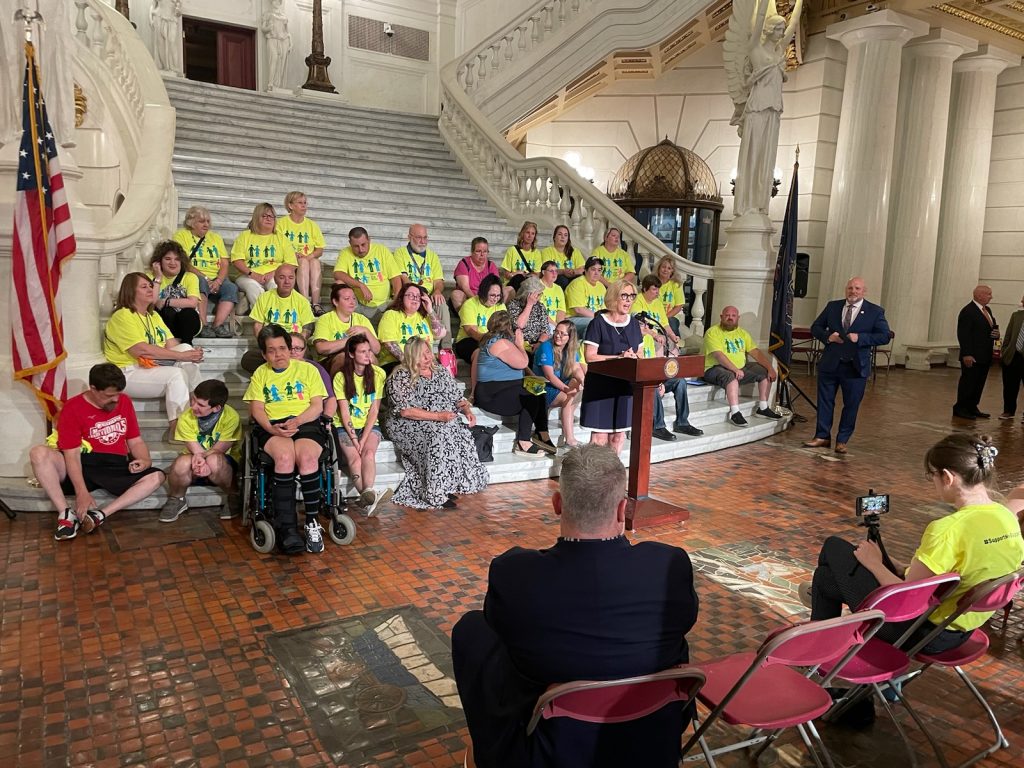
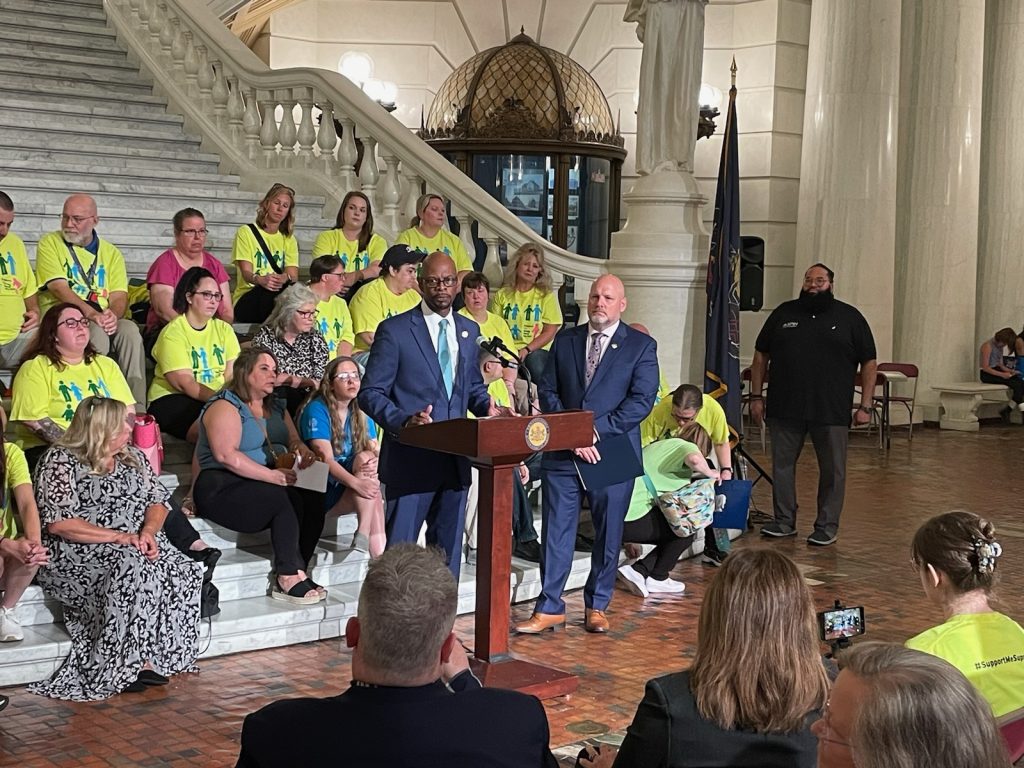
In addition, many self-advocates, including DSPs and family members of those with ID/A, attended and spoke about the need for funding.










